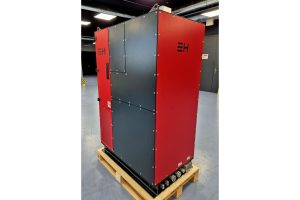The financing round was led by an equity investment from UG Investments, along with grant financing from the IPCEI (Important Project of Common European Interest) framework for hydrogen technologies. It also includes contributions from other investors and grants. Stargate says it is proud to be recognized as an IPCEI project and to be part of the hydrogen technology wave that includes industry-leading companies such as Enel Green Power, De Nora, Sunfire, and others. At the core of Stargate’s IPCEI is the integration of reliable and robust alkaline technology with a new type of catalyst material that is inherently more active compared to current market alternatives, according to the company.
Instead of precious metals, Stargate is using a ceramic-based catalyst material that significantly contributes to reducing the levelized cost of hydrogen, while maintaining the reliability of alkaline technology. Additionally, Stargate has developed its proprietary stack and system design, treating the electrolyser as a battery system and adopting learnings from the rapid development cycles of lithium-ion batteries over the past 15 years. The IP portfolio of Stargate covers all levels of the system, including materials, electrodes, stack, and even control systems of the entire plant. The first installations of Stargate’s electrolyser technology are already in the field, and offtake customers include Utilitas, one of the largest renewable energy developers in the Baltic Sea region.






